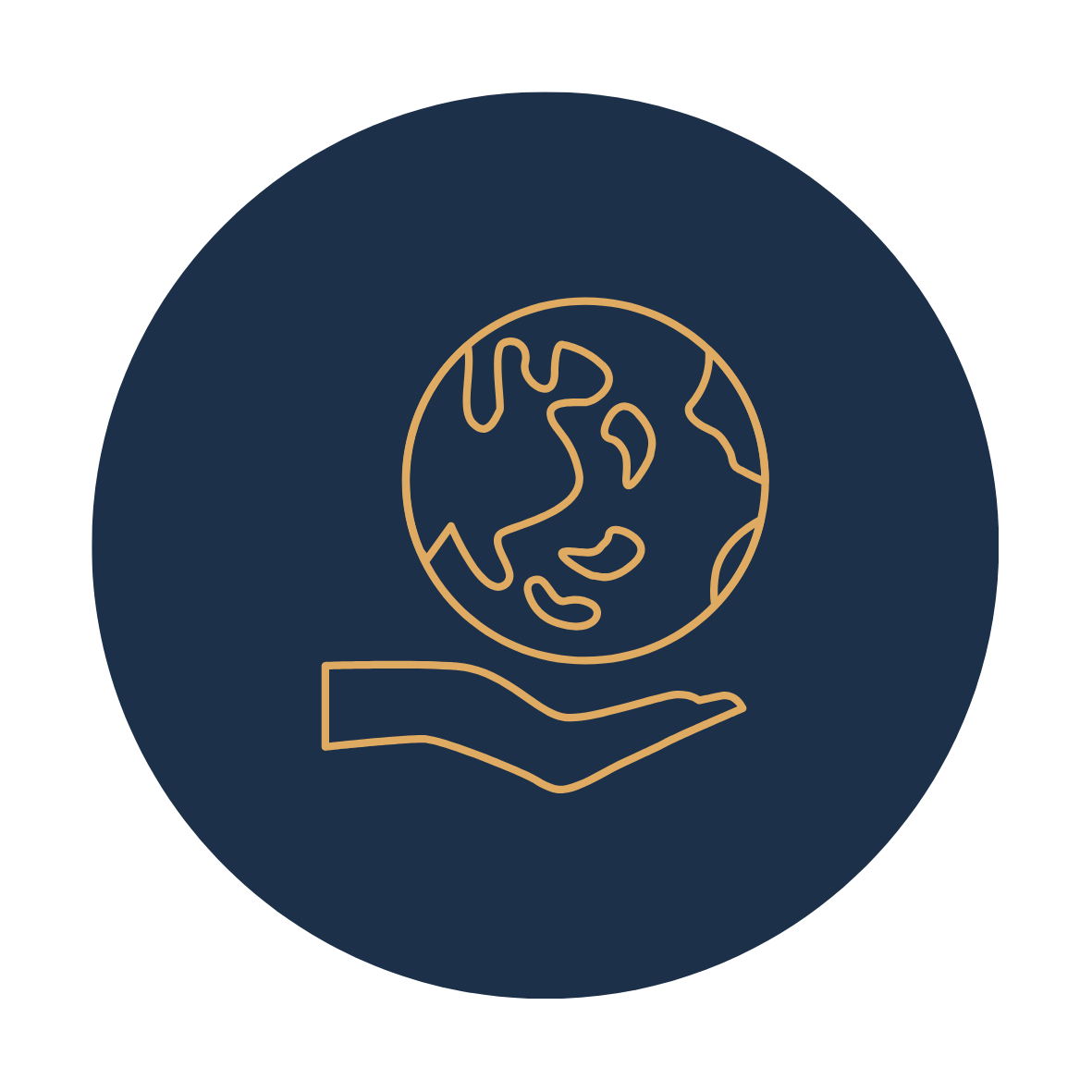Sessions in the topic of
Sociodrama and Ecology – environmental issues and relationships between organisms, including humans, and their living context
Sociodrama and Ecology – environmental issues and relationships between organisms, including humans, and their living context
POSSIBILITIES OF SOCIODRAMA IN THE CONTEXT OF
ENVIRONMENTAL CONSCIOUSNESS
MODERATORS: KATALIN HEGYES – ZSELYKE MOLNOS
ENVIRONMENTAL CONSCIOUSNESS
DATE AND TIME: 27th of June, Thursday 9:30-10:45
CONFERENCE TOPIC: Sociodrama and ecology – environmental issues and relationships between organisms, including humans, and their living context
TYPE: Roundtable discussion
ROOM:
NUMBER OF PARTICIPANTS: 40
TAGS: Sociodrama and Ecology, June27 Morning
ABSTRACT:
Increasingly hot summers, snowless winters, water restrictions – the signs of the climate crisis are becoming more and more apparent in our daily lives. How can sociodrama help to promote a more environmentally conscious attitude, so that we realise that we need to change our lifestyles for the sake of our future?
The discussion will be attended by foreign sociodramatists, such as Marjut Partanen-Hertell from Finland, Enikő Fazakas from Romania or Hungarian experts, such as Attila Donáth, who have worked on ecological issues in sociodramatic workshops.
The aim of the roundtable is to give experts the opportunity to share their experiences and present their work.
Main themes might include:
• How can we address these issues without creating fear, anxiety, or reinforcing images of disaster?
• Sociodrama can also serve as a way for a community to collectively figure out what they can do for their immediate environment. How can sociodrama contribute to developing community solutions in this area?
• To make the necessary changes, it is not enough to change individual lifestyles, but economic, political and social changes are needed. How can we work sociodramatically with this?
The audience will learn about different possibilities and “best practices” on how sociodrama can serve to shape ecological attitudes and conscious behaviour – at the individual, small community, or societal level.
ABOUT THE MODERATORS:

Katalin Hegyes is a trainer, communication expert, a biblio- and psychodrama teacher, working with sociodrama in social institutions and mainly in school classrooms. She is one of the founders of the Hegyvidék Green Circle in Budapest, author of the book Outdoors! and she has also completed a course in human ecology, which is why she is interested in using sociodrama to raise environmental awareness and strengthen local eco-initiatives.

Zselyke Molnos: As a biologist and psychologist, she has been working in the field of ecopsychology for a decade. Her work at the Ecopsychology Institute, their Nature-Connection Facilitator trainings, her books (eg. The Ecopsychological Paradigm), her lectures, as well as the participatory nature walks she facilitates, all focus on the paradigm shift in our relationship with the rest of nature, that is of upmost importance. Her PhD research at ELTE Eötvös Loránd University, Psychology Doctoral School, People-Environment Tranzaction program also focuses on nature connectedness and nature perception.
SAFE AND JUST EARTH IN THE ANTHROPOCENE – WHAT IS ECOLOGICAL JUSTICE?
PRESENTER: MARJUT PARTANEN-HERTELL
DATE AND TIME: 27th of June, Thursday 11:00-13:00
CONFERENCE TOPIC: Sociodrama and ecology – environmental issues and relationships between organisms, including humans, and their living context
TYPE: Presentation with some action exercises
ROOM:
NUMBER OF PARTICIPANTS: 24
TAGS: Sociodrama and Ecology, June27 Morning
ABSTRACT:
In this presentation ecological scientific facts are combined to a creative process with sociodramatic and other action exercises. After this session participants will be able to:
- explore and illustrate scientific facts with some action exercises and make science alive trough sociodrama
- understand the present ecological situation in the Anthropocene and see their own place in that
- describe what Ecological Justice means and identify their own role connected to that
- define part of the different views and stakeholders emerging on the field of ecological justice
- strengthen their abilities to take responsibility to support the world as we know it now.
Marjut Partanen-Hertell. 2011. Sociodrama in Finland – an environmental context. In R. Wiener, D. Adderly, & K. Kirk (eds.), Sociodrama in a changing world. www.lulu.com
Johan Rockström, et al. 2023. Safe and just Earth system boundaries, Nature, vol. 619, pages102–111. https://www.nature.com/articles/s41586-023-06083-8
ABOUT THE PRESENTER:
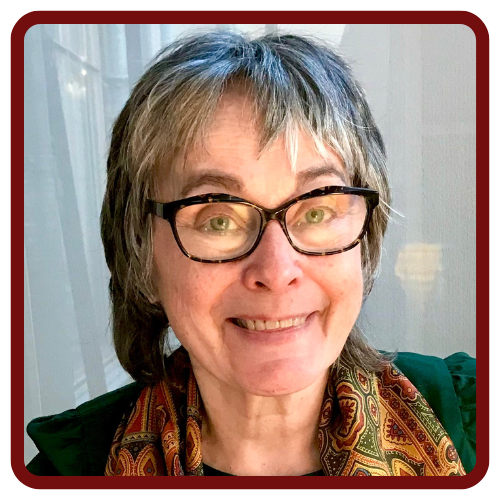
As environmental engineer and sociodramatist Marjut worked in the Finnish Environment Institute for 40 years with regional and international projects. She is former chair of the inter-governmental working group on Public Awareness and Environmental Education of HELCOM in the Baltic Sea area, and Finland’s former Representative on the Management Committee of the environmental financial instrument EU/LIFE. She lectures in international conferences, and is an author or co-author of several books, latest Sociodrama in a Changing World (2011). At present her focus is on the ecological change of the Earth.
M.S. (Env Tech), Information Scientist, Psychodrama and sociodrama trainer TEP (Nordic Board of Examiners), Supervisor STOry (Finnish Association of Supervisors), Tele ’Drama Practitioner (CTP – L3), Member of ASGPP and IAGP, former chair of the Finnish Psychodrama Trainers, FEPTO Network Group for Climate Change, former Member on the Board of the Finnish Association of Civil Engineers RIL, Trainer and examiner at the Helsinki Psychodrama Institute.
INTERVIEW WITH THE EARTH –
RAISING AWARENESS OF SUSTAINABLE ENVIRONMENTAL CONNECTION THROUGH SOCIODRAMA, ECO-PSYCHOLOGY AND ARTS
PRESENTERS: ATTILA DONÁTH – ENIKŐ FAZAKAS – DÉNES MARÓTI – BEÁTA SOMOGYI – ANDREA SZENDREI – ATTILA TURBA
RAISING AWARENESS OF SUSTAINABLE ENVIRONMENTAL CONNECTION THROUGH SOCIODRAMA, ECO-PSYCHOLOGY AND ARTS
DATE AND TIME: 27th of June, Thursday 14:00-16:30
CONFERENCE TOPIC: Sociodrama and ecology – environmental issues and relationships between organisms, including humans, and their living context
TYPE: Workshop
ROOM: Outdoor Program
NUMBER OF PARTICIPANTS: 35
TAGS: Sociodrama and Ecology, June27 Afternoon
ABSTRACT:
In this workshop, we will present the programme developed in the framework of the Erasmus+ project “Interview with the Earth”, which was designed to deepen the connection between nature and humans. In this programme, we have combined methods from the fields of sociodrama, ecopsychology, land art and Playback Theatre to provide an action-oriented and inspiring experience that fosters a deeper connection and awareness of nature among participants.
Workshop participants will be active participants in a process of exploring new aspects of the relationship between nature and humans through a combination of four distinct but interconnected methodological approaches.
The aim of our workshop is to show how combining human sensitivity, creativity and interaction with nature can provide new opportunities for connecting with nature and environmental awareness.
The workshop is practical and participation-oriented.
ABOUT THE PRESENTERS:
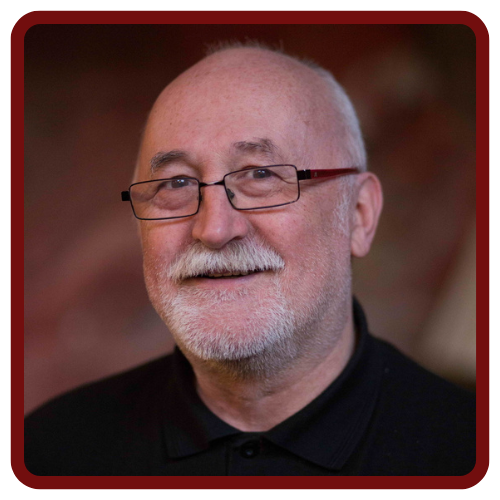
Attila Donáth: completed his psychodrama training in the early ’90s. He has been working for over thirty years as a consultant, organizational developer, trainer, supervisor, coach, and community social worker.
In his work, he integrates sociodrama as a method, which he applies widely in various fields.
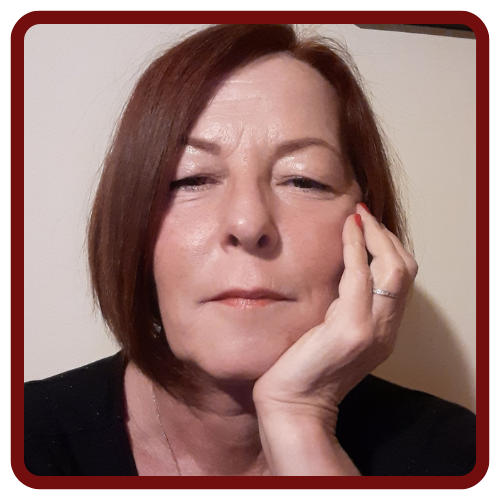
Enikő Fazakas: is a clinical psychologist and psychotherapist, member of J.L. Moreno Psychodrama Association in Romania. She completed her training in psychodrama methodology from 2009 to 2015, and obtained her psychodrama therapist title in 2017. In her professional practice, she integrates psychodrama, sociodrama, and playback theater. She works in private practice settings, offering individual therapy, and leads self-awareness groups using monodrama and psychodrama techniques. In 2014, she founded the non-profit organization Panta Rhei, where she implements adult education Erasmus+ projects using sociodrama and Playback Theater methodologies.
PLAYBACK THEATRE – FINE ART – ECOPSYCHOLOGY
PERFORMERS: ECOPSYCHOLOGY PLAYBACK THEATRE (HU) & SEPSI PLAYBACK THEATRE (RO) & FRIENDS
PERFORMERS: ECOPSYCHOLOGY PLAYBACK THEATRE (HU) & SEPSI PLAYBACK THEATRE (RO) & FRIENDS
DATE AND TIME: 28th of June, Friday 21:00-22:30
CONFERENCE TOPIC: Sociodrama and ecology – environmental issues and relationships between organisms, including humans, and their living context
TYPE: Playback theatre
ROOM:
NUMBER OF PARTICIPANTS: 100
TAGS: Sociodrama and Ecology, June28 Evening
ABSTRACT:
Playback Theatre is one of the most important contemporary community based, participatory theatres in the world. It is a genre of storytelling theatre based on interaction and improvisation, which utilizes the wisdom and strength of community, the art of theatre and the basic idea of psychodrama. Playback Theatre companies have been operating around the world for over 45 years and in more than 75 countries. It has a world wide movement and an international network of Accredited Trainers and of Schools in affiliation with the Centre for Playback Theatre. There are more than 11 Schools of Playback Theatre in this netwtwork, including the Hungarian School of Playback Theatre.
In Playback Theatre, members of the audience tell their personal experiences and the performing team members “play them back” on the spot. This helps a personal and at the same time facilitates a community and social change and transformation. There is place for all stories, for everyday moments and turning points in our lives, for untold and unheard stories too. Each story is unique and each has a common humanity. Playback Theatre draws people closer as they see their common humanity.
This genre of improvisational theatre is also a powerful method of communication in almost any human community. It is not only practised as theatre, but also used as an applied method in many contexts: education, health, social institutions, NGOs, church organisations, companies, private and public sectors, etc.
A personal story, told in front of us and immediately played back, respecting the storyteller, his or her experience and in tune with the community, allows an intimate and deep connection, creating the necessary atmosphere.
Playback Theatre is a modern recreation of an oral traditional ceremony. Similar events entertained the community of a village or a tribe, but the goal was always something more – for example, to cure an illness, to solve a social or community problem, or to remind the creators of some kind of ancient wisdom.
With the ecopsychological approach of playback theatre, our aim is to respond to ecological challenges, the destruction of nature and the alienation between man and nature through the tools of playback theatre. During the interactive performance, participants share their own feelings, moods and stories, which are processed and presented on the spot, as well as reflected in an ad hoc exhibition of paintings and drawings. In doing so, we foster a community dialogue, connection and reconnection with ourselves, each other and nature. Thus healing the crisis of alienation in alignement with all activities and programs of the Ecopsychology Association.
The performance of the two companies and their international playback theatre colleagues at the conference will give participants the opportunity to directly experience the power of Playback Theatre and its associated fine art forms to address social and ecological issues, especially in the light of their fresh experiences at the conference.

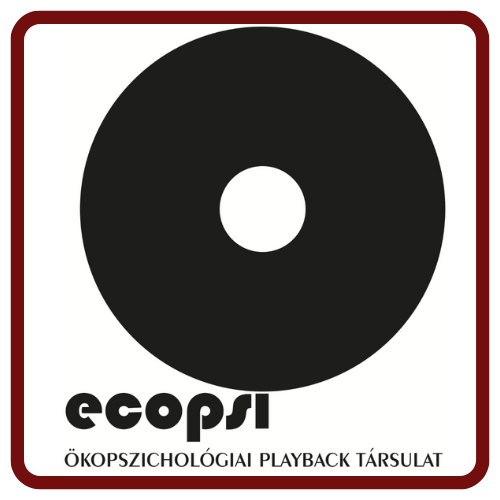
ECOPSYCHOLOGICAL CONTEXTS IN FAIRY TALES
– WHAT MESSAGE DOES THE LAND SEND US?
PRESENTERS: ATTILA DONÁTH – Dr. ANDREA KALÓCZKAI
– WHAT MESSAGE DOES THE LAND SEND US?
DATE AND TIME: 29th of June, Saturday 10:00-12:30
CONFERENCE TOPIC: Sociodrama and ecology – environmental issues and relationships between organisms, including humans, and their living context
TYPE: Workshop
ROOM:
NUMBER OF PARTICIPANTS: 16
TAGS: Sociodrama and Ecology, June29 Morning
ABSTRACT:
In this workshop, we will utilize sociodrama techniques to delve into the archetypal messages found within fairy tales, examining their resonance within ecopsychological contexts.
We will be working on the Indian tale The Buffalo Girl and her Friend the Crow (William Camus: Firebirds – a collection of stories).The technique used here uses sociodramatic and playback theatre devices by J.L. Moreno and J.Fox. The theory of interpretation of the fairy tale is based on the Treasure Hunting Story Therapy method created by Márta Antalfai, which is strongly based on the analytic theory of C.G. Jung. The above method combines elements of psychodrama and Jungian analytic-based story therapy.
During the workshop, spiritual work takes place in the group, using the fabric of the chosen fairy tale as a base story, and the main interpsychic conflicts and crises in the story are played out. The focus will be on nature settings and characters symbolically present in the fairy tales, and their impact on humans, especially the protagonist and their human relations.
In the process we personalise important objects, people, and act out the situation. The choice of roles is individual. At the start we will be choosing roles, setting the scene, and afterwards there will be processing and feedback. We will be working with all our senses. This allows us to learn about ourselves, our connections, details we did not know before, which can help us identify our problems. Fairy tales contain special underlying themes, ancient symbols, archetypes, basic conflict patterns, through which we can receive energies from the collective unconscious, beyond the individual consciousness.
This tale explores questions of living together in and with nature, belonging to a group, and the necessary and sufficient use of nature.
We will be focusing on two scenes. In the first one we explore the difficulties of the heroine’s return to the group after growing up in nature. In the other, we will look at two human responses to nature’s eternal bounty – one where greed and insatiability rule, and the other where necessity and moderation dominate.
Through these two examples, we can see the element that is fundamental to the tales, that human changes are closely linked to nature, as if they were an imprint, thus proving symbolically and factually that man and nature are inseparable, and their fate is interdependent.
ABOUT THE PRESENTERS:

Attila Donáth: Completed his psychodrama training in the early ’90s. He has been working for over thirty years as a consultant, organizational developer, trainer, supervisor, coach, and community social worker. In his work, he integrates sociodrama as a method, which he applies widely in various fields.
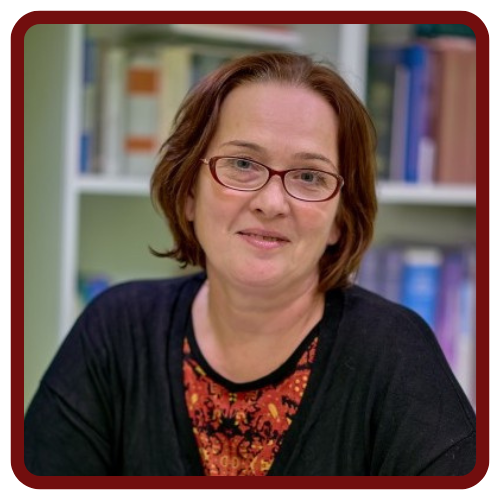
Dr. Andrea Kalóczkai: As a neurological physician, she began to take an interest in the psychological functioning of patients and the effects of the psyche on the body at the beginning of her career. She became a psychodrama psychotherapist and led psychodrama groups for several epileptic patients. She conducts analytically oriented individual therapies with monodramatic elements. Nearly 20 years ago, she started to become interested in fairy tales and narrative therapy based on Jungian principles. Since then, she has been working as a trainer and facilitator of self-awareness groups in this field.
A MOCK TRIAL OF THE GODHEADS:
EXPLORING ANSWERS AND SOLUTIONS (TBC)
PRESENTERS: SHEILA DALLAS-KATZMAN – WHITNEY BELL
DATE AND TIME: 29th of June, Saturday 10:00-12:30
CONFERENCE TOPIC: Sociodrama and ecology – environmental issues and relationships between organisms, including humans, and their living context
TYPE: Workshop
ROOM:
NUMBER OF PARTICIPANTS: 40
TAGS: Sociodrama and Ecology, June29 Morning
ABSTRACT:
In a World of Global Warming, the Frequency of Hurricanes and Earthquakes and Floods and Fire,
Are the Gods to Blame?
Why are we having these natural catastrophes? Was this part of the gods’ plan? What is our collective responsibility for our past and our collective future?
J.L. Moreno had the view that everyone is interconnected with and related to the creator. He thinks that a creator, sometimes referred to as the Godhead, is where creativity originates. We propose staging a mock trial to interrogate the godhead(s) entity about creation and the current state of the world to better understand how we may all work together to reverse what we are currently experiencing. Participants will have the opportunity to choose who or what will address the godheads, such as elements in nature and/or representatives of other cultures. They will choose the venue for the trial, such as a conference, a community center, an open area, or a courtroom.
Learning Objectives:
- To have heightened agency to do things in community outside of our comfort zone;
- To reframe the question of blaming;
- To use Sociodrama to build an ecology of praxis for change.and to build an ecosystem around a praxis for social interrogation and intervention.
ABOUT THE PRESENTERS:

Sheila Dallas-Katzman, MA is a passionate applied theatre practitioner with over 30 years of experience using action methods of Theatre of the Oppressed, Sociodrama and Psychodrama with groups in both the private and public sectors.
Sheila is co-founder of Ten Lanterns Transformative Theatre, which uses action methods as tools for social change. Her work focuses on social justice, dismantling racism, war impacted communities, and climate change. Sheila is the co-founder of Food Stories Virtual Encounter, a virtual Theatre of the Oppressed forum using food as a catalyst to highlight issues of food security and insecurity. She is president of the International Association of Women in Radio and Television (IAWRT/USA); and chairs the NYC for CEDAW Act Coalition, working closely with the New York City Council and the Commission for Gender Equity bringing New York City into compliance with CEDAW (United Nations Convention for the Elimination of All Forms of Discrimination Against Women). Through her leadership, New York City now has a Commission for Gender Equity.
She is a member of the Theatre for Social Justice and co-founder of Kings County Black, Indigenous and People of Colour (BIPOC) project developed to capacitate Youth aged 14-24 years in navigating community issues through the arts and media. Her work intersects with both public and private institutions, and grassroots and international organizations. She is a theatre director and actor, and writes plays for stage and radio.
Sheila graduated from the University of Manchester (UK) with a Master’s Degree in Applied Theatre, a Bachelor’s Degree in Broadcast Journalism and Media Studies from Hunter College/CUNY (USA) and a Teaching Diploma in Theatre Arts from the Edna Manley School of Visual and Performing Arts (Jamaica), along with post-graduate credits in Conflict Resolution from Columbia University School of International and Public Affairs (USA). She has received multiple honours for her contributions to the performing arts, radio, and international peacekeeping and in 2018 was awarded the UN Women Champion of Change Award for her work on women and gender. She has been nominated for the 2024 ASGPP Innovators Award and congratulates the winner who well deserved it – her choice too.

Whitney Bell
Online Sessions
MOVING OUT OF OUR COMFORT ZONE:
MAKING SPACE FOR PEOPLE WITH DIFFERING VIEWS
PRESENTER: MIRIAM ZACHARIAH
MAKING SPACE FOR PEOPLE WITH DIFFERING VIEWS
DATE AND TIME: 29th of June, Saturday 17:00-19:00 (Central European Time)
CONFERENCE TOPIC: Sociodrama and ecology – environmental issues and relationships between organisms, including humans, and their living context
TYPE: Workshop
LOCATION: ZOOM
NUMBER OF PARTICIPANTS: Any
TAGS: June29 Online
ABSTRACT:
Many of us feel overwhelmed and defeated by the enormity of the climate crisis facing us and the impact it is already having. We are also deeply concerned about the impact on future generations. Using the magic of sociodrama, we can give voice to our grief and fear, hear from the earth itself and the needs of the future. In facing our reality on this planet, we can through dialogue find new connection with each other and the power of our own actions to make change- rediscovering hope.
After this session participants will be able to:
- identify and express their feelings about their specific concerns related to the environment
- identify ways in which they are already part of the change towards greater harmony with the earth
- explore ways to continue and deepen the movement toward healing the environment and ourselves in relation to it.
ABOUT THE PRESENTER:
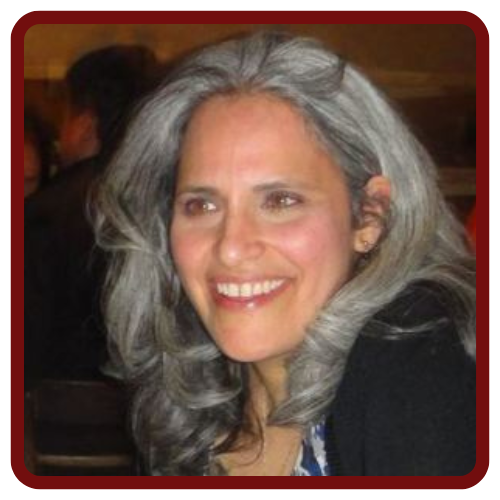
Miriam Zachariah has been a public school educator for over 30 years and recently retired as an elementary school principal. She is a recognized trainer in restorative practices and Peacemaking Circles. The focus of her work as an educator, consultant and trainer has been on developing community in workplaces, intervening in conflict and supporting dialogue across differences. She has trained hundreds of educators to use restorative practices to develop safe and supportive learning communities in classrooms and schools. In addition, she has also trained community workers, police officers, lawyers and therapists to use peacemaking circles in their communities to develop strong relationships and effectively work through conflict. She has successfully facilitated restorative processes with a range of group to help them move through complex conflicts, find resolution and plan next steps.
